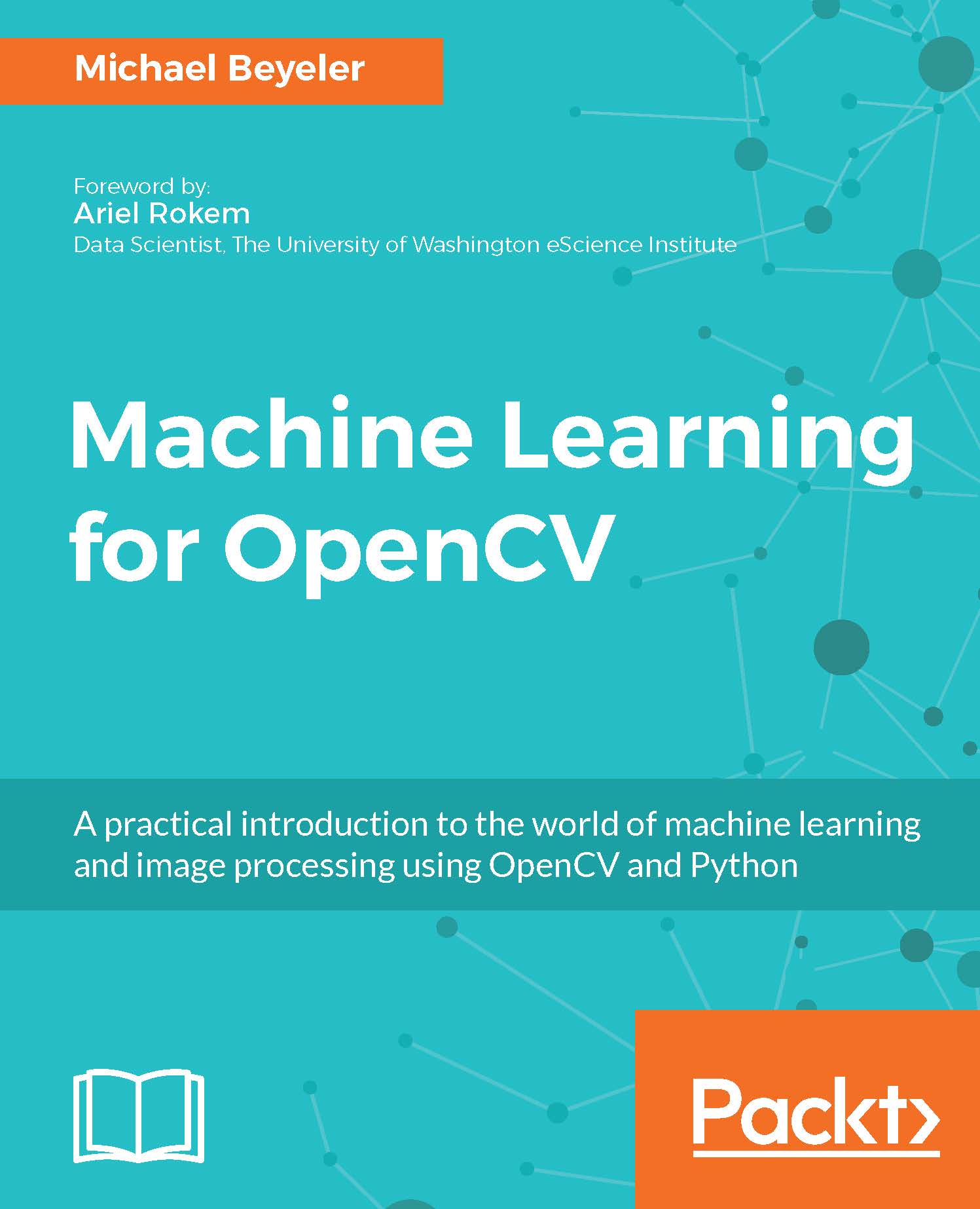Python has become the common language for many data science and machine learning applications, thanks to its great number of open-source libraries for processes such as data loading, data visualization, statistics, image processing, and natural language processing. One of the main advantages of using Python is the ability to interact directly with the code, using a terminal or other tools such as the Jupyter Notebook, which we'll look at shortly.
If you have mostly been using OpenCV in combination with C++, I would strongly suggest that you switch to Python, at least for the purpose of studying this book. This decision has not been made out of spite! Quite the contrary: I have done my fair share of C/C++ programming--especially in combination with GPU computing via NVIDIA's Compute Unified Device Architecture (CUDA)--and like it a lot. However, I consider Python to be a better choice fundamentally if you want to pick up a new topical skill, because you can do more by typing less. This will help reduce the cognitive load. Rather than getting annoyed by the syntactic subtleties of C++ or wasting hours trying to convert data from one format to another, Python will help you concentrate on the topic at hand: becoming an expert in machine learning.


